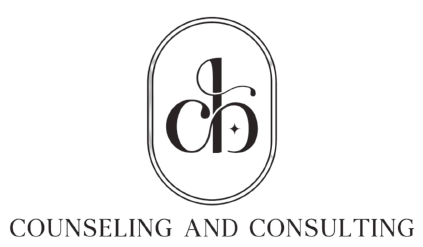Mental Health Blog

Overcoming burnout and exhaustion
Are you struggling to find energy and motivation despite your best efforts? Do you feel overwhelmed by the constant demands of work, family, and personal responsibilities? If you’re nodding along, you’re not alone.
Burnout can creep up on anyone, leaving you drained and disengaged from the things you once loved. But what if there were ways to not only recognize but also overcome these feelings of burnout and exhaustion?
Burnout isn't just feeling tired or stressed out; it's a state of physical, mental, and emotional exhaustion that can have serious consequences for your health and well-being. Often characterized by feelings of cynicism, detachment, and a sense of ineffectiveness.
Recognizing the Signs
Identifying burnout early can make a significant difference in recovery. Common signs include:
Physical Symptoms: Persistent fatigue, headaches, gastrointestinal issues, and frequent illness.
Emotional Symptoms: Feelings of helplessness, hopelessness, irritability, or a sense of being overwhelmed.
Behavioral Symptoms: Reduced performance, withdrawal from responsibilities, procrastination, and increased absenteeism.
Cognitive Symptoms: Difficulty concentrating, memory problems, and negative thinking.

Identifying the Causes
Burnout doesn’t occur overnight. It’s usually the result of prolonged exposure to stressors. Common causes include:
Work Overload: Consistently being overloaded with tasks and responsibilities without adequate breaks or support.
Lack of Control: Feeling powerless or lacking autonomy in decision-making processes.
Unclear Expectations: Ambiguity about roles and expectations can lead to confusion and frustration.
Work-Life Imbalance: Struggling to balance professional demands with personal life and self-care.
Strategies for Overcoming Burnout
Acknowledge and Accept: The first step in overcoming burnout is acknowledging that you’re experiencing it. Accept that it’s okay to feel this way and that seeking help is a sign of strength, not weakness.
Prioritize Self-Care: Self-care is essential for recovery. Make time for activities that rejuvenate you, whether it’s exercise, meditation, or hobbies you enjoy. Ensure you’re getting enough sleep and eating a balanced diet.
Set Boundaries: Learn to set clear boundaries between work and personal life. Avoid taking work calls or checking emails during your downtime. Communicate your limits to your colleagues or supervisor if necessary.
Learn to Say No: It’s important to recognize your limits and say no to additional commitments when necessary. Saying no is a skill that protects your time and energy, allowing you to focus on what’s most important.
Seek Support: Don’t hesitate to seek support from friends, family, or a mental health professional. Talking about your feelings can provide relief and offer new perspectives on managing stress.
Reevaluate Your Goals: Take a step back and reassess your personal and professional goals. Determine if they are realistic and aligned with your values. Adjusting your goals to be more achievable can reduce feelings of frustration and burnout.
Practice Mindfulness and Relaxation Techniques: Incorporate mindfulness practices, such as deep breathing exercises or meditation, into your daily routine. These techniques can help calm your mind and reduce stress.
Take Breaks and Vacations: Regular breaks during the day and time off from work are crucial for preventing and recovering from burnout. Use your vacation time to recharge and step away from work-related stressors.
Delegate and Ask for Help: If possible, delegate tasks to others and ask for help when you need it. Sharing responsibilities can alleviate some of the pressures that contribute to burnout.
Engage in Meaningful Activities: Reconnect with activities and interests that give you a sense of purpose and fulfillment. Engaging in meaningful activities can provide a boost in motivation and overall well-being.
Moving Forward
Recovering from burnout takes time and patience. It’s important to implement these strategies gradually and to be kind to yourself throughout the process. By taking proactive steps to manage and prevent burnout, you can reclaim your energy and restore your well-being.
Remember, you’re not alone in this journey. Many people face similar challenges, and support is available. Prioritizing your mental health is essential for leading a balanced and fulfilling life. By addressing burnout and exhaustion, you pave the way for a healthier, more resilient you.
Disclaimer: The content in our blogs are for informational purposes only and should not be considered a substitute for professional mental health advice, diagnosis, or treatment. Always consult with a qualified mental health professional for personalized guidance and care. In case of a mental health crisis or emergency, please call emergency services immediately.

© 2023 All Rights Reserved
We are offering services online via Telehealth
(614) 957-3321
Hours: Monday-Friday 9:00am-6:00pm

© 2023 All Rights Reserved

